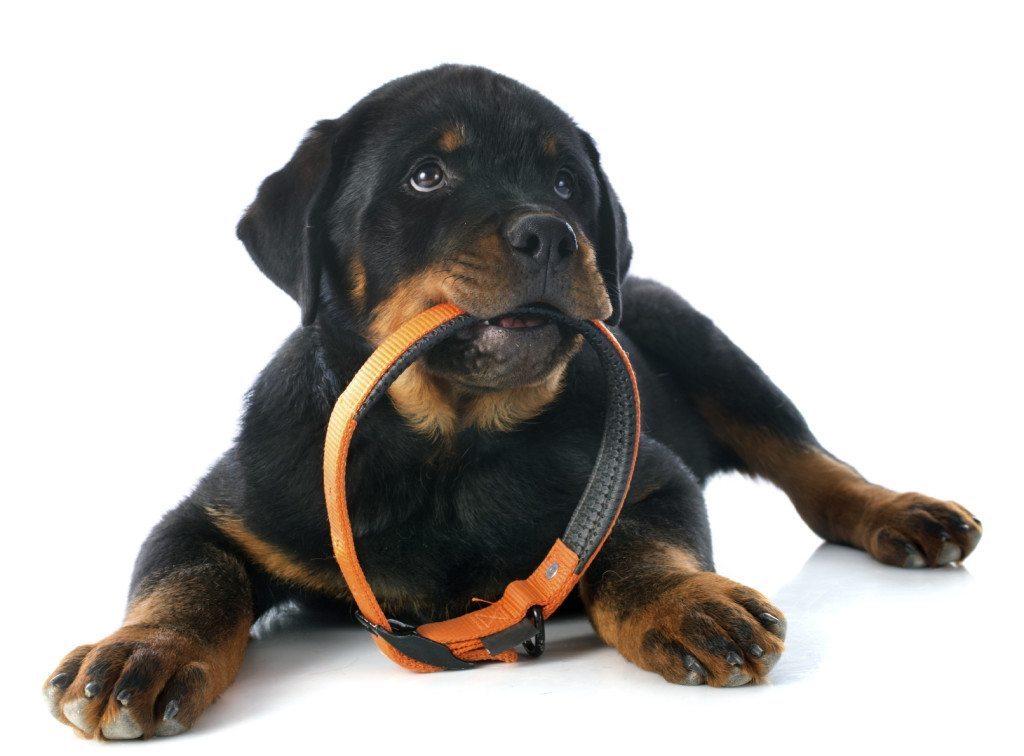We’ve all heard that shock collars can be an effective dog training method. But new research suggests that shock collars are much less effective than positive reward training and can, in fact, traumatize your beloved pet. So when you’re considering methods of dog discipline, you may want to keep the following facts in mind before choosing a plan.
Shock Collars Cause Distress in Dogs
A recent study by researchers at the University of Lincoln in the UK found that dogs who had shock collars showed significantly more symptoms of distress. The study, called “The Welfare Consequences and Efficacy of Training Pet Dogs with Remote Electronic Training Collars in Comparison to Reward Based Training,” showed that dogs who had shock collar training experienced significant distress. They demonstrated clear signs of anxiety, tension, and even aggression towards humans and other dogs.
The study separated 63 dogs into three groups. One group was given shock collar training, while the other two groups were given reward-based training. The shock collar training followed industry guidelines by the companies manufacturing the devices. Dogs that experienced shock collar training showed significant tension, less interest towards people and environments, and excessive yawning.
Shock Collars Provide No Added Benefits
Jonathan Cooper, lead author of the paper, concluded that training with an electronic collar “did not result in a substantially superior response to training in comparison to similarly experienced trainers who do not use e-collars to improve recall and control chasing behaviour. Accordingly, it seems that the routine use of e-collars even in accordance with best practice, as suggested by collar manufacturers, presents a risk to the well-being of pet dogs. The scale of this risk would be expected to be increased when practice falls outside of this ideal.”
Even when shock collar training is performed by industry professionals, it leads to increased animal anxiety that is noticeable by researchers and pet owners alike. Worse, dog owners unfamiliar with exact shock collar protocol could possibly injure and traumatize the dog even more. This study proves that shock collar training is definitely not a good way to train your dog.
How Shock Collars Work
Not all electronic collars are distinctly shock collars. There are beep collars, vibrating collar, and then shock collars. Neither the beep nor vibrate options deliver any type of painful sensation to the dog. But the shock collar operates with two contact points at the dog’s neck that send a painful jolt of electricity through the animal’s body.
The exact amount of pain a dog feels from a shock collar depends on the duration, the strength, and the frequency of the current. It also depends on the exact dog’s pain tolerance. Some dogs feel virtually nothing and will not respond to the shock collar, while others will yelp in pain and surprise.
However, there is some evidence that shock collars, in addition to increasing tension within dogs, can also boost aggression. Dogs can link the pain from the shock collar towards humans, children, and other dogs. If you have children around the house, having a shock collar is not a good idea.
In fact, it’s really not a good idea in general. When you purchase a shock collar, you’re buying a device that electrocutes your dog for simple infractions. Reward-based positive training, such as giving the dog a little treat for good behavior, is shown to work 100% of the time. With such overwhelming evidence, shock collars are gradually being perceived as an inhumane device that traumatizes and scares animals. But positive reinforcement through treat-based training helps your dog associate certain behaviors with rewards, a method that makes you- not to mention your dog- incredibly happy.
Photo Credit: istockphoto.com










